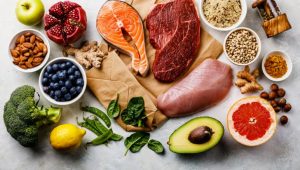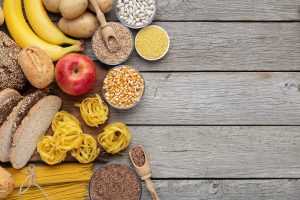What You Need To Know About Carbs: How to make better choices.
When the word ‘Carbs’ comes up in conversation we seem to go into recall mode, wondering how much I just ate and the dreaded voice that says yep you are going to get fat.
Well.. that’s not 100% true if you know what those carbs are and what they are doing for your body. After reading a couple of insightful articles and a Ted episode by Richard J. Wood on ‘How do carbohydrates impact your health?’, it was clear that I too needed a reminder about it.
So what is a carbohydrate?
A ‘Carbohydrate is the nutritional category for sugars and molecules your body breaks down (J.Wood). There are 2 types of carbs, complex and simple carbohydrates. These two carbs are different due to their molecular structure.
Glucose, Fructose and Galactose are monosaccharides that are simple sugars and carbs. Link two of these together and you get Disaccharides like Lactose, Maltose, or Sucrose.
Complex carbs have 3 or more simple sugars that are strung together.
Breaking down Carbohydrates
When these complex carbs are consumed your small intestine breaks down the complex carbs into monosaccharides which your cells can use for energy. So when you eat carb-rich food, the sugar level in your blood goes up.
Here is the INTERESTING PART … Your digestive tract does not respond to all carbs the same way.
Carbohydrates with a starch base, like puff puff versus a piece of broccoli that is more fibre-based, have very different impacts on the body and our body’s ability to break down those carbs on a molecular level.
Your Sugar Level and Carbohydrates
So you may be wondering what this has to do with making choices about what you consume. Well, it has a lot to do with the amount of sugar our carbohydrates contain and their Glycemic index of them; how fast glucose/sugar is released into the blood.
Things with high starch carbs like bread/crackers can be so easily digestible in the blood which increases the blood sugar level faster. Foods like these have a High Glycemic index; foods that raise the sugar level in your blood quickly. This can be seen more clearly in something high in glucose, like a soda ( Fanta, Coke, Sprite), hence the sugar rush and dreaded crash.

If you eat food high in fibre like vegetables, fruits and whole grains, they have a Medium Glycemic index. The sugar is slowly released into the blood because of the beta bonds that connect the carbohydrate. Eggs, cheese and meats have the Lowest glycemic index. But for those that are vegan other alternative options are also on the market.
In summary, try to eat more food that has a Medium to Low Glycemic index. This allows for the slow release of energy.
High Glycemic index ( Try to avoid)
Medium Glycemic index ( consume regularly)
Low Glycemic index ( consume often)
Processing sugar in the body and the effects
When sugar moves from the digestive tract to the bloodstream your body tries to transfer this into the tissue to be used for energy. Your pancreas releases Insulin to be used for sugar management, so when you eat something with high sugar insulin is released into the body that prompts muscle/fat cells to let glucose in to start to turn the sugar into energy.
Consuming a lot of high glycemic index carbohydrates,(sugars) may lead to insulin resistance and cause the term ‘Metabolic Syndrome’.
This resistance has been suggested by some scientists to show up as symptoms such as:
- Increased waist circumference
- High blood sugar
- High blood pressure
- Cardiovascular disease
- Type II diabetes
The big Idea.
Be more conscious about what you eat and what it is doing for your body. Fuel your body to perform and not just the craving that we all give in to. Eat in moderation and remember to DOMINATE DON’T COMPETE.
Article Written by: @fitkaytoday, @tribesportstore
TRIBE SPORT STORE
Email: tribesportsstore@gmail.com
Mobile: +234 909 2197 476







Leave a comment